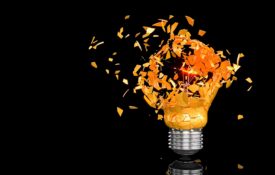-

Unconventional Data Sources Fuel Research Innovations
Researchers are finding new benefits and reserves of participants by accessing data from unconventional sources. These sources can provide much larger and more diverse information than many traditional data sources, but they also come with caveats and ethical standards to be used effectively.
-

Artificial Intelligence Systems Excel at Imitation, but Not Innovation
While children and adults alike can solve problems by finding novel uses for everyday objects, AI systems often lack the ability to view tools in a new way, researchers explain in this study.
-

Exploration vs. Exploitation: Adults Are Learning (Once Again) From Children
Podcast: Why should kids have all the fun? Alison Gopnik on how science and business, too, can resolve the tension between the lure of the crazy new thing and the safe haven of the tried and true.
-

Encouraging Innovation in Entrepreneurship
Drawing from his newest book, Stephen Reed explores the cognitive and social skills required for innovation, the transition from theory to practice, and more.
-

Myth: The Lightbulb Moment, Innovation’s Most Misleading Meme
Edward Wasserman explores the origin of the famous “lightbulb moment,” how the popular cliché originated, and what can be learned from it.
-

Charging up the Creative Battery
Transcranial electrical stimulation (tES) can be used to help bolster areas of the brain associated with creative thought. By learning about the neural patterns of creative thought, scientists are exploring how to steer them in new directions.

